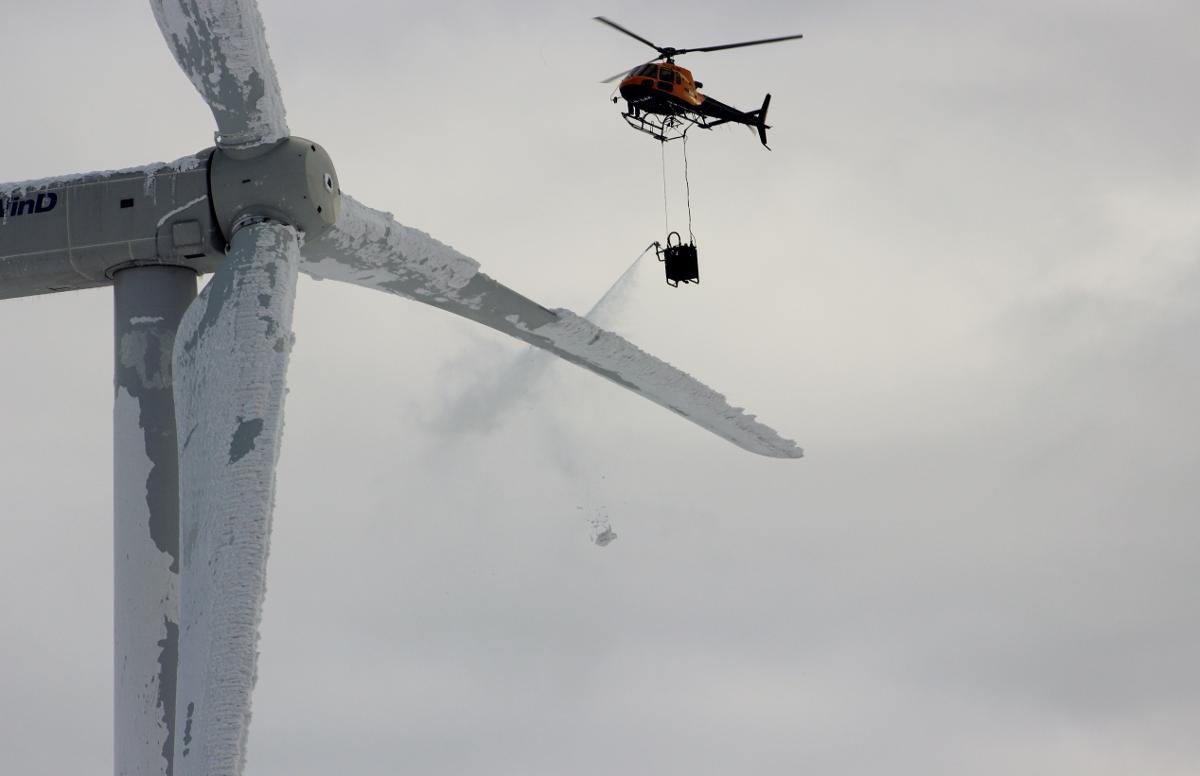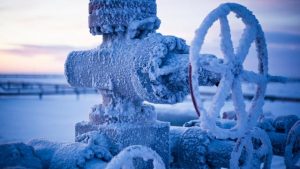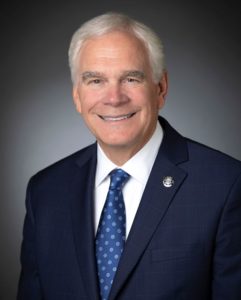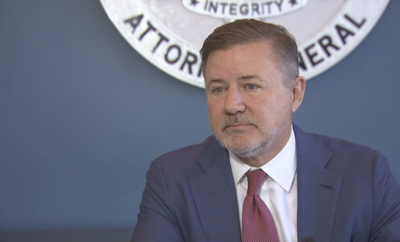
Three years ago this week, Oklahoma, Texas and a handful of other states endured what the National Weather Serevice called “one of the most impactful winter events in recent history.”
Yes, 2021 Winter Storm Uri. Or at least that’s the name attached to it by the Weather Channel. You remember. Bitter cold, snow, sleet and freezing rain that resulted in historic natural gas prices for utilities, rolling blackouts and of course, hundreds of deaths in Texas when the state’s electric grid, known as ERCOT or Electric Reliability Council of Texas, failed for all practical purposes.

For those who believed renewable energy would provide them power, it didn’t happen. Wind turbines were reported to be frozen because of the deadly weather. Others denied such reports, but pictures of ice-laden turbines proved damaging.
In Oklahoma, natural gas operations suffered the same issue.

The weather brought road closures, power outages, loss of heat, broken pipes and other impacts in the region.
The Weather Service later called it the first billion dollar disaster of 2021 globally, and for Texas, the most costly weather disaster for the state in history.
Oklahoma had been warned of the approaching storm and the severe weather started on Wednesday, February 10 when a cold front raced across the state. Sleet and freezing rain hit the state the following day as the Midwest awaited the arrival of a stronger Arctic cold front, which happened on Valentine’s Day, February 14, a Sunday. It was the turning point that created such an historic storm.
But it wasn’t finished with the state and neither with Texas, nor others in the region. Within a few days, new ice accumulated and it continued through Tuesday and Wednesday. Snow accompanied the dangerous ice that brought down trees and power lines. It lasted for days—more than 8 in all before there was relief.
In the meantime, electric generating utilities in Oklahoma went from natural gas prices that started around $3 per thousand cubic feet. The gas was used to run the electric generators. Within days, some gas companies attempted to use the force majeur clause in their contracts, a maneuver that would allow them to remove liability for unforeseeable and unavoidable catastrophones that interrupt the expect course of events and prevent suppliers from fulfillilng their obligations.
Within days, natural gas prices for Oklahoma utlities soared—no, they skyrocketed to a never-before-heard-of $1,200 per Mcf. The Oklahoma gas prices proved to be the highest such natural gas prices ever in U.S. history. Some utilities in the state credited coal with saving them from being unable to produce the needed electrical power.
It led to calls for investigations. For two years, not much happened regarding those probes. But in Oklahoma, legislators reacted quickly even as the storm lingered, and created the “February 2021 Regulated Utility Consumer Protecton Act” which provided for the issuance of bonds so utilities wouldn’t be burdened with the historic costs and they could be passed along to consumers for the next 25 to 28 years.
Authors of the measure, which had heavy support in the legislature but led to continuing controversy over the financial long-term impact on ratepayers, included Okemah State Sen. Roger Thompson and Rep. Kevin Wallace of Wellston.
Legislators actually filed the bill as Uri was building strength across the middle of the U.S. It was February 12 when it was first filed and by April 20 was approved in the legislature and sent to Gov. Kevin Stitt who signed it into law on April 23. Remember, the storm started its roll across Oklahoma and Texas on February 10, so it would appear in just those two days, legislators felt they might assist utilities with an impending disaster. To this day, it remains unclear who actually came up with the idea and who wrote the bill.
But the most severe weather had yet to arrive.
It would not be until 2022 when OG&E, ONG, PSO and CenterPoint Energy would take the first steps to seek securitization and the use of bonds to extend their storm costs over years.
It was also in 2022, a year to the month of the storm, when questions were raised along with suspicions about who really profited from the storm. Then-Attorney General John O’Connor initiated some of claims and attempted to blame oil and gas companies.

He even threatened lawsuits in a letter sent to dozens of oil and gas operators, marketers and midstream companies.
“If we do not hear back by Feb. 8, 2022, we will file suit,” wrote O’Connor. Then he changed his mind. His press secretary, Madelyn Sheriff issued a statement.
“The Office of Attorney General has been undertaking an investigation into price gouging since last year. The investigation is still under way. We can’t provide additional details or comments at this time.” That’s what she stated to Non Doc, the news group.
O’Connor reached a little too far in laying immediate blame on the oil and gas industry and back tracked. He later explained his initial letters were intended to “toll the statute of limitations so we could have adequate time to move to the next phase of hearing from the industry.”
He added, “Those initial letters to industry members triggered the critical conversations we needed with the industry.”
O’Connor appeared to apologize for being hasty.
“The Oklahoma energy industry kept the lights on and heaters running through Winter Storm Uri while other states faced deadly blackouts,” O’Connor said. “It is also true that the financial cost to ratepayers of Winter Storm Uri is not something Oklahomans want to see repeated.”
O’Connor eventually did nothing regarding any investigation into possible price gouging.
But Kansas Attorney General Kris Kobach moved ahead with his investigation and filed a price gouging suit in February of 2023, naming Houston-based Macquarie Energy as the defendant.

The same company that supplied utilities in Oklahoma. Kobach’s suit was dismissed on a technicality and he later refiled it as a federal suit seeking to recover money for Kansas consumers. He charged that Macquarie had manipulated natural gas prices during the storm, a claim refuted by the Houston company.
“It’s disgraceful that Macquarie would manipulate prices at a time when Kansans were already hurting from the storm,” Kobach said as he refiled the suit. “We will do everything we can to recover what was taken from those Kansans.”
Macquarie, the nation’s second-largest gas marketer was also mentioned in the summer of 2023 when Oklahoma Attorney General Gentner Drummond announced the launching of his own investigation into the historic natural gas prices. He immediately cleared oil and gas production companies, saying they had nothing to do with it.

In July of 2023, the Attorney General went public and vowed to file the largest lawsuit in state history in an attempt to recover what he said was “billions of dollars” in natural gas costs from the storm.
“As a result of the careful and diligent review of conduct during Winter Storm Uri, I discovered that several companies reaped billions of dollars at the expense of businesses and individuals who were suffering from the crippling effects of the storm,” Drummond said in a press release. “The magnitude of this scheme is staggering and unconscionable. Oklahomans can rest assured that I will do everything in my power as Attorney General to return what was taken and hold accountable those responsible.”




